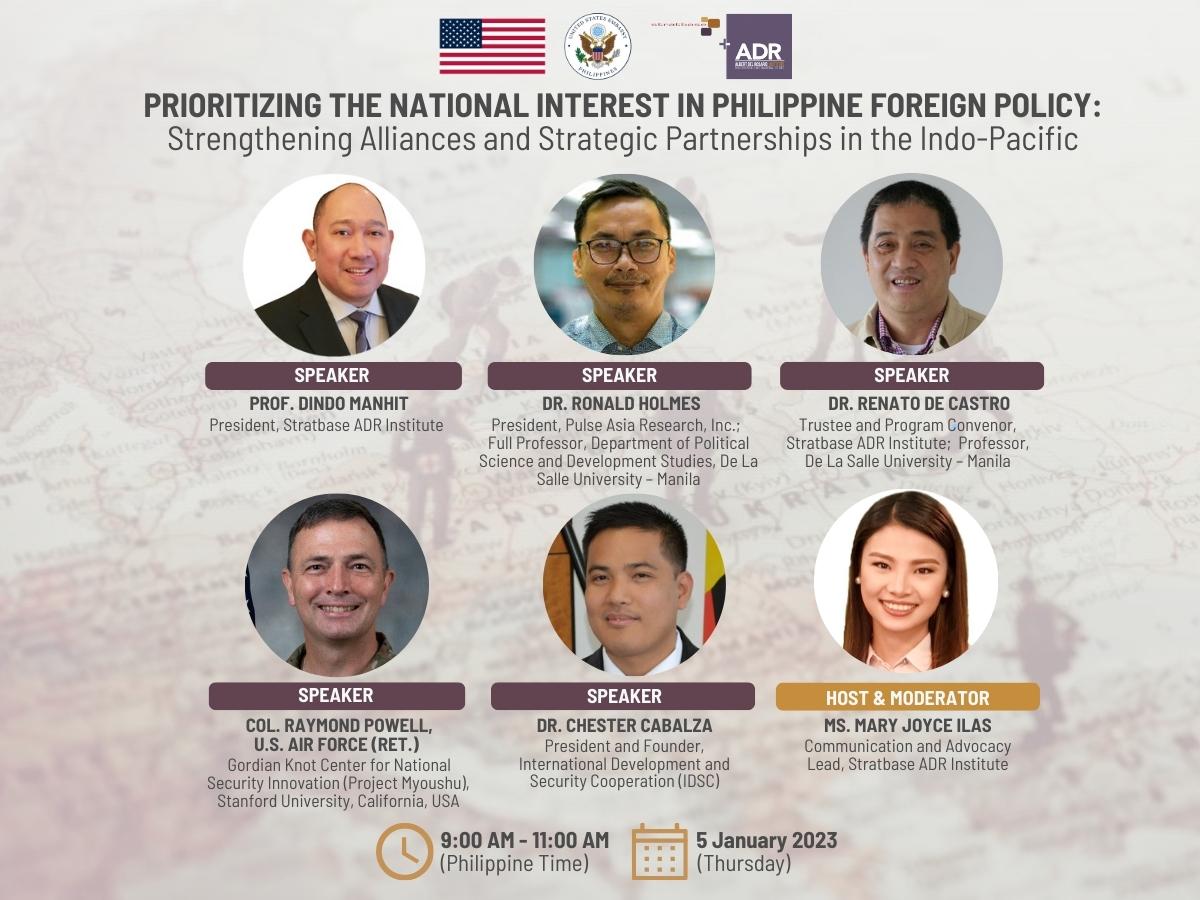Join the Stratbase ADR institute on its webinar titled "Prioritizing the National Interest in Philippine Foreign Policy" on January 5, 2023, at 9:00 am, via Zoom.
Hosting a complex security environment coupled with its geopolitical importance, the Indo-Pacific has become a priority for various states. This is exemplified in the publication of their respective Indo-Pacific strategies as part of their foreign policy, which outlines their concerns in managing the security threats in the region. Moreover, these policies illustrate the recognition of states' collective responsibility in maintaining a peaceful, prosperous, and stable region through fostering multilateral cooperation with like-minded states. At the same time, these strategies shape the region's security architecture and are crucial in maintaining a rules-based international order through strengthening alliances and strategic partnerships.
In the Philippines, President Ferdinand "Bongbong" Marcos Jr's in-person meetings and foreign travels signify his administration's commitment to maximizing the country's existing partnerships and expanding its diplomatic networks. As security challenges in the region intensify, there is a need for the Philippines to cooperate with like-minded nations such as the United States, Australia, Japan, and India to navigate the Indo-Pacific's complex security architecture strategically.

